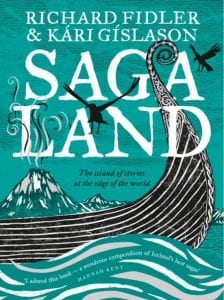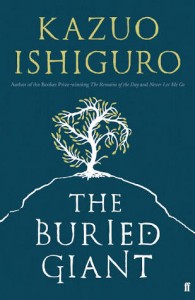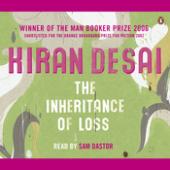 ‘Saga Land’ was not what I was expecting – but then, the collaboration between broadcaster, Richard Fidler, and Kari Gislason, a writer and academic born in Iceland starts with multiple but different needs to investigate Icelandic history. So really, you could expect something unexpected.
‘Saga Land’ was not what I was expecting – but then, the collaboration between broadcaster, Richard Fidler, and Kari Gislason, a writer and academic born in Iceland starts with multiple but different needs to investigate Icelandic history. So really, you could expect something unexpected.
Kári was born Iceland – the product of an affair, hidden by his father. In the spirit of his mother, he has travelled beyond Iceland to Australia (with her) but also discovered an impulsion to study Icelandic literature at university, rather than the law studies he first engaged in.
‘Saga Land’ moves between the observations of journalist, Vidler, recollections of Gislason and the Icelandic sagas they wish to share.
There are many different themes which flow through ‘Saga Land’ – providing an insight to the culture of Iceland. Honour, conflict, violence and family heritage are strong elements of the tales.
“Each character is responding to a situation in which violence seems necessary and ceaseless. And somehow, the saga… prompts us to see the strangeness of the characters’ behaviour in the light of their desires, their complexity as human beings.”
The different perspectives of Kari, a native of Iceland, and Vidler, an Australian journalist, provide an interesting balance. Kari’s investigations, as a returned Icelander, reveal a personal insight as he revisits his childhood home – though being half-Icelandic and in search of is heritage. Vidler provides journalistic structure, while being genuinely interested in Kari’s Icelandic heritage and, personally engaged.
What a great and inspiring learning experience for all (readers included). So it doesn’t really matter what I was first expecting when I picked up this book – it has given me a view of history, family heritage and culture perspectives I would have missed, had I not opened this book.
N.B. Another tale readers might enjoy is by Hannah Kent, Burial Rites – also set in Iceland, investigating the last women to be executed for murder in Iceland (an amazing literary debut for a young Australian author). Previously reviewed.
There is also a podcast you can visit, where Richard Vidler and Kari Gislason discuss the journey to create Saga Land if you want to hear from the authors.
Does Saga Land make you want to investigate your family heritage/culture?
Note – loved this as an audiobook/physical book combination. Especially when read by the co-authors, with authentic pronunciations of Icelandic names. (A bit like ‘reading’ Burial Rites by Hanna Kent)
 Should parents’ dreams be lived through the lives of their children?
Should parents’ dreams be lived through the lives of their children? 



